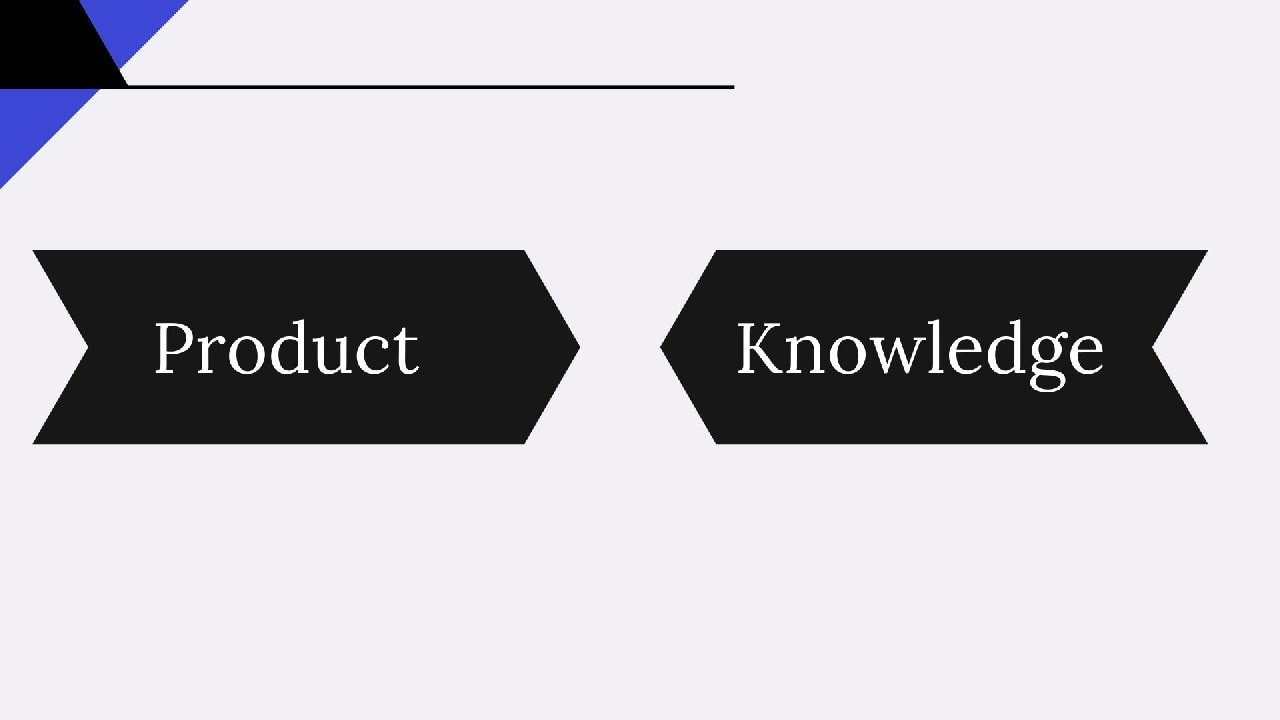
Product Knowledge - Why Is Product Knowledge Important?
Product Knowledge – Meaning, Importance and Types
March 11, 2020 By Hitesh Bhasin Tagged With: Marketing
With the help of Product Knowledge, a company communicates essential information about any product or service.
Product knowledge is used to inform audiences, investors, media or customers, and answering their questions is a crucial business management practice.
In this article, we will be diving deep into the world of product knowledge and understand why it is considered essential. So, let us get started right away.
Table of Contents
Meaning of Product Knowledge
Knowledge is the most crucial asset of humanity.
It exists everywhere, and it can be applied universally. There is no place where knowledge cannot be used. One must have thorough knowledge about aspects like one’s job, business, and product.
Product is the entity developed after several steps of research and is brought out in the market for sale. Products are built to attract consumers and make profits out of their usage.
The product should be appropriately marketed to reach out to a wide range of consumers. That is where product knowledge comes into play.
Product knowledge is the proficiency of giving the customers information about products. As a company or brand or business, you must provide insight to your customers, information related to the products and any update about it.
Also, media or investors can be your target audience.
It is crucial to communicate with your customers. At times, a salesperson is preferred to be knowledgeable.
For instance, we can say that it will be beneficial to offer product knowledge training for executive management, marketing, sales, also, for customer service roles.
What is the need for Product Knowledge
For marketing, the company needs good salespersons and marketing staff who should be able to address the needs of the consumers and map it with the features of the product.
They should be able to define the product, explain it and demonstrate how it will ease the consumer’s life.
Product knowledge can be defined as the communication skills possessed by the marketing team to highlight the product. It can be done in front of the investors, the media and the consumers.
Importance of Product Knowledge
1. Product knowledge helps businesses to respond to any objections appropriately.
Be it price or any comparison with the competitor about a specific product. Knowing about your product is essential so that you can explain why it stands out of the crowd. It will surely help you in either way.
2. Product knowledge can help businesses respond better to experts.
It can be easy if you are selling to typical prospects. But when you’re dealing with buying agents, or other professionals, then they’re more likely to test your knowledge. So, it’s better to understand everything about it.
3. Product knowledge gives customers self-assurance.
Yes, it indeed boosts up your confidence. Once you gain a certain amount of knowledge regarding a product, you will be more prepared for any situation. Product knowledge helps customers understand the competition better.
4. Product Knowledge Enhances Mission and Vision
Excellent product knowledge strengthens the mission and vision of a business. It helps the company achieve it to the best levels and put it out there for the world to know. The mission and vision generally address the reasons behind making a specific product and its description in detail.
5. Product Knowledge helps in Troubleshooting and Customization
Every customer has different requirements and different problems with one particular product. Product knowledge will help the salesperson explain its troubleshooting and customize the product according to the user requirements.
6. Product Knowledge gives Additional Offers
Most of the products can be combined with some other products for a better and wholesome experience of their usage. Product knowledge offers ways to convince the user to accept the additional offers. That helps in growing the business and increasing sales and profits.
7. Product Knowledge helps in Brand Establishment
A brand is not built overnight. It takes toiling through days and nights to achieve success. An efficient team with excellent product knowledge and its application can pave the way to brand establishment.
Try to know your product and your competitors’ product simultaneously.
It will benefit you in categorizing what you have better. Also, you can work on bettering if any of your features are not as good as them. Therefore, it can always help you with the betterment of sales sometimes in features, price, value or anything of the product.
How Can Businesses spread their Product Knowledge?
As it is essential to have product knowledge, similarly, it is how to gain it.
There are ways through which you can acquire the product knowledge. Training sessions, role-playing, sales representative, testimonials, marketing literature are some ways you can build excellent knowledge of products.
A real-life example should be laid out in front of the staff to take their ideas and enhance their product knowledge. The salesperson should be given lessons on how to tend to customer requirements and how to mould the product according to that.
The most crucial asset regarding product knowledge is the way you deliver it to the customer or the stakeholder. That requires tremendous confidence in your demeanour and belief that you have made a good and worthy product.
Also, the practical use of it can make you even better. Experience is the best teacher.
A person can always learn better if they have done a reasonable use of it. It is vital to know the significance of your product. Its value and how the product is made is evenly typical.
Even sometimes, you need to explain how the product can be used. And what product works well together. These things are to be kept in mind while you think of product knowledge.
It would help if you had proper and smooth communication within the staff as well as with the clients and customers. If a company lacks a proper flow of communication, there will be no positive impacts.
Different types of product knowledge are given below-
Types of Product Knowledge
- Customer
- Brand
- Customer Experience
- Competition
- Industry
- Use
- Complementary Products
- Configuration
- Troubleshooting
- Customisation
- Specifications
- Integration
- Policy and Procedures
- Mission and vision
What businesses should cover in a Product Knowledge
- Its price of value.
- History of the product.
- How to use the product
- If there is any particular manufacturing process
- Servicing, repairing, and warranty of the product
- A lifetime of the product.
- Styles, models and colours available.
- Also, how it can benefit the customer.
- The value of the product.
- Auxiliary uses of the product.
- Complimentary add-ons of a product.
Product Knowledge Wrap Up!
Product knowledge can always benefit you and boost your enthusiasm.
It grows your confidence as a salesperson and also makes you aware of what you’re selling. And your communication skills will eventually improve.
The entire team should possess product knowledge for effective marketing and sales of the product. It ensures a prosperous and profitable business.
How important do you consider product knowledge for any business? Share your views with us in the comments.
Related Posts:
- Marketing Communication: Meaning & Types of Marketing Communication
- What is Customer Intimacy?
- Customer Centric – Definition, Meaning, Characteristics, Advantages
- Loyalty Program – Definition, Importance and Types of Loyalty Programs
- Customer Experience – Concept, Examples and Strategy
- Customer Analysis
- Customer Profiling Definition and Benefits (with Steps Explained)
- What is Product Development? Definition, Meaning, Phases
- Consumer Behavior: Definition, Importance and Types
- Customer Satisfaction – Definition, Importance and Methods









